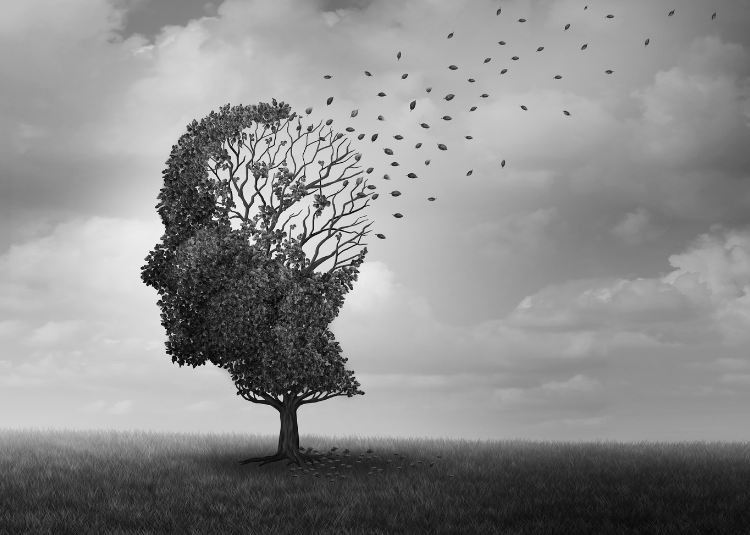Neurodegenerative diseases are incurable and debilitating diseases that result in a progressive degeneration (deterioration) of nerve cells, the death of those cells, or a combination of both. Examples are Parkinson’s disease, Alzheimer’s disease and Huntington’s disease. Medical cannabis is increasingly used to relieve the most harmful symptoms of these diseases.
Deterioration of the nerve cells
Neurons are the building blocks of the human nervous system, which consists of the brain and spinal cord. Normally, neurons cannot divide, so they cannot be replaced, even if they are damaged. Neurodegenerative diseases cause progressive degeneration of nerve cells and / or death of the nerve cells. This causes patients to have problems with movement, ataxia in medical jargon, or with mental functioning: dementia.
Dementia is responsible for the greatest disease burden, with Alzheimer’s disease being the cause in 60 to 70 percent of cases. An overview of the main neurodegenerative disorders and their symptoms.
Alzheimer’s disease
Alzheimer’s disease is a form of dementia that is common in older people, but can also occur in young people. The aging population and increasingly better medical care – making us much older than in the past – makes the disease a growing problem. At an advanced stage, patients no longer recognize family and close friends and sometimes 24-hour care is required. The speed at which symptoms develop and worsen after diagnosis can vary greatly. Some patients maintain a standard quality of life for years after diagnosis, others deteriorate rapidly.
Symptoms:
- Loss of short-term memory
- Disorientation
- Irrational Hostility
Parkinson’s disease
Parkinson’s disease mainly involves physical symptoms. The most recognizable Parkinson’s symptom is a physical tremor. These tremors are often so severe that patients cannot perform even the simplest tasks without assistance.
Symptoms:
- Physical tremor (shaking)
- Loss of balance
- Slow motion
- Slurred speech
Motor neuron diseases
Motor neuron diseases, also called motor nervous diseases, are a family of conditions that affect movement, speech and body functions. The best known is ALS or amyotrophic lateral sclerosis. In America, this motor neuron disease is also called Lou Gehrig’s disease, after a famous baseball player who suffered from it. There are approximately 1,500 ALS patients in the Netherlands, mainly men.
Symptoms:
- Loss of strength in limbs
- Cramps or twitching
- Slurred speech
- Inability to grasp objects normally
Huntington’s disease
This neurodegenerative condition is caused by a faulty gene in one of the chromosomes. It is a hereditary disease, so if you inherit the gene from one of your parents, you will eventually get the disease yourself. The first symptoms usually appear between the ages of 35 and 45, but can also occur later or earlier. On average, the disease leads to death of the patient after nineteen years, usually due to additional causes such as pneumonia.
Symptoms:
- Loss of motor function
- Involuntary (choreatic) movements
- Loss of the ability to think normally
- Severe reduction in logical reasoning ability
- Unexplained mood swings, including anger and irritability
How can cannabis help with neurodegenerative diseases?
Medicinal cannabis has a positive effect on people suffering from neurodegenerative diseases in several ways: treating symptoms, relieving pain, improving sleep and reducing anxiety.
Treatment of symptoms
How effective cannabis will be depends on the specific neurodegenerative condition. In Parkinson’s disease, cannabis can have a positive effect on both motor and non-motor symptoms. We know from animal studies that this is due to the neuroprotective effect of THC and CBD; these cannabinoids protect the neurons or nerve cells.
There is also some evidence that cannabinoids, alone or together, can reduce the onset of symptoms of Alzheimer’s dementia. THC can slow the release of beta-amyloid proteins, which experts say are essential contributors to Alzheimer’s disease. While more research is needed on these uses, the future looks bright when it comes to treating neurodegenerative symptoms with cannabis. Neurodegenerative disorders are often aggravated by stress and as we have known for centuries, cannabis is a very effective stress reliever.
Pain relief
One of the best known and most widely applied uses of medicinal cannabis is its use as a pain reliever. The plant is effective in alleviating all kinds of pain, including inflammatory pain – caused by inflammation – and neuropathic pain caused by problems with nerve cells. The pain experienced by patients with neurodegenerative disease is usually neuropathic. This means that the pain comes from damage to the central nervous system, not physical injury. Cannabis relieves such pain by acting as a calming agent on the central nervous system, thereby relieving pain sensations.
Improvement of sleep
The sleep-enhancing effect of cannabis has also been known for hundreds if not thousands of years. While worsening sleep is not usually associated with neurodegenerative problems, it can make existing problems worse. After all, the health of our brain is highly dependent on a good night’s sleep.
The use of cannabis, for example in the form of oil or an edible (edible cannabis product), significantly increases the chance of a good night’s sleep, partly due to the calming effect of cannabis on the central nervous system.
Reduction of anxiety
Currently, most neurodegenerative diseases cannot be cured. While patients can often manage their symptoms well, they will usually worsen over time. Understandably, that fact can cause serious anxiety and worries about the future as the condition progresses.
Cannabis can relieve these kinds of fears due to the interaction of cannabinoids with our CB2 receptors. To be able to see the bright side, the possibility to look at your situation differently, to enjoy simple things: these are all “side effects” of medicinal cannabis that can enormously improve the quality of life of patients.
Sources used for this article:
What is a Neurodegenerative Disease? Neurodegenerationresearch.eu
Can cannabis help with the treatment of neurodegenerative disease?, Legal Reader, 18 september 2020
Marijuana for Parkinson’s Disease? Innovations in Clinical Neuroscience, januari 2019
A Review on Studies of Marijuana for Alzheimer’s Disease – Focusing on CBD, THC, Journal of Pharmacopuncture, december 2019

